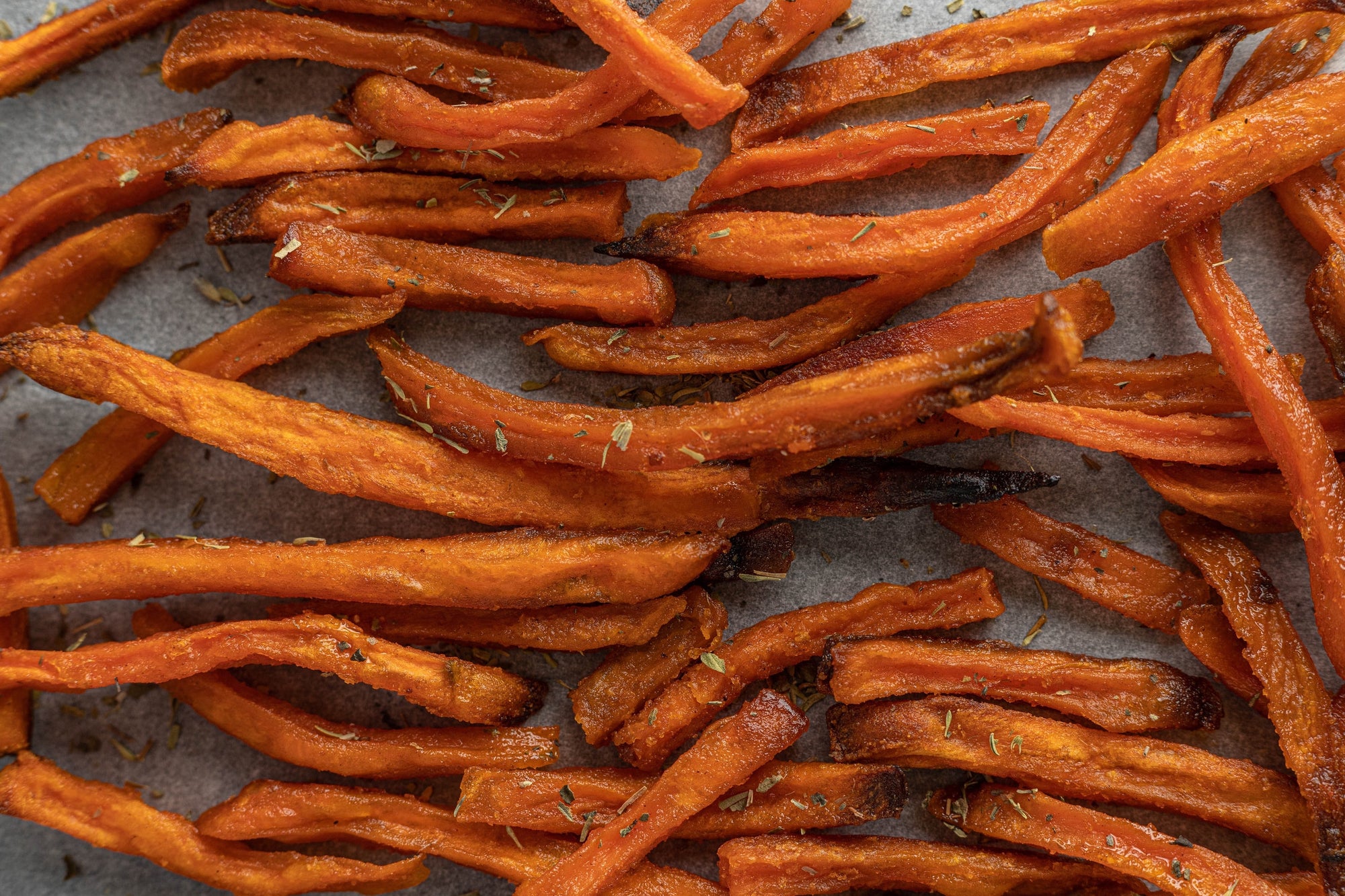

· By Margaret Kaufman
Carbs Are Not The Enemy
Common mistakes people make when attempting to lose weight or “get healthy” is to restrict necessary food groups. One food group that gets a bad reputation 99% of the time is, you guessed it, carbohydrates. Ever heard the saying “carbs will make you gain weight”? As popular as this saying may be it is simply not true. In actuality, carbohydrates, more affectionately known as carbs, are not the bad guy.
Foods that contain carbohydrates include fruits, starchy vegetables, legumes, dairy products, and nuts to name a few. These foods collectively provide the body with a source of energy, vitamins, and minerals, which are used by the body for growth, repair, and maintenance.
For instance, did you know dairy products contain calcium and phosphorus which are two important minerals for bone health and reducing blood pressure levels? Also, were you aware fruits contain a variety of vitamins and minerals which prevent hidden hunger? Hidden hunger is a micronutrient deficiency that results from the lack of vitamins and minerals in the diet. Therefore doing away with all carbs can put one at risk for fatigue, osteoporosis, and nerve damage, among other ailments.
HOW YOUR BODY USES CARBOHYDRATES
When carbs are consumed, digestion first begins in the mouth and then moves into the stomach where carbs are broken down into three small compounds: glucose, galactose, and fructose. Glucose, galactose, and fructose are all absorbed by the small intestine and used for fuel or energy.
The consequences of cutting out carbohydrates from the diet is that the body does not get its preferred source of energy to use. Did you know the brain prefers to use carbohydrates and not protein or fat for fuel? When protein or fat are used for fuel this is a process known as gluconeogenesis. Gluconeogenesis is how the body makes glucose if it is deprived of carbohydrates. In other words, your body will resort to using fat or lean muscle for energy instead of carbohydrates! This may be a good thing or a bad thing depending on how you look at it. Getting rid of extra, unnecessary fat is a plus, but it can be dangerous when the body starts to metabolize the protective fat surrounding the vital organs. Protein metabolism results in a breakdown of muscle which can cause weakness and an overall decline in health.
HOW CARBOHYDRATES BENEFIT YOUR BODY
BOOSTING CALCIUM & PHOSPHORUS
One carbohydrate of importance that should be addressed is dairy products. Dairy products are a great source of calcium and phosphorus. Do you remember the “milk makes the body good commercials”? Besides being my all time favorite commercial, milk along with cheese, yogurt, cottage cheese, and ice-cream are loaded with calcium and phosphorus. Calcium and phosphorus work synergistically to promote strong bones which can help prevent a weakening of the bones better known as osteoporosis. Calcium, in my opinion, is a fundamental nutrient when it comes to bone health. Eating enough calcium rich foods ensures our bones remain strong and healthy throughout our lives. Besides strengthening the bones, calcium also helps the blood to clot and plays an important role for building a healthy immune system. Phosphorus, on the other hand, provides the body with a source of energy by specifically breaking down carbohydrates so it can be used by the body. Although dairy products are great sources of calcium and phosphorus, there are people who cannot tolerate these food items. In that case try plant-based “milk” beverages, cheese, or yogurt fortified with calcium to ensure you’re getting full nutritive benefits.
FIBER & YOUR GUT BIOME
Another group of carbohydrates that should get a notable mention are legumes, nuts, and starchy vegetables. These include beans and peanuts, almonds and walnuts, and potatoes and corn. These foods also contain fiber, which is an important part of a healthy digestive system. Fiber also has the potential to improve cholesterol and make you feel full for a longer period of time. When these foods are consumed they are fermented by the normal bacteria living within the colon, and as a result, fiber can influence the gut biome. The gut biome is a collection of millions of bacteria that inhabit the intestines, and is important for an overall healthy immune system.
HEALTHY FATS & HEART HEALTH
Let’s go nuts! Nuts not only contribute to a healthy immune system, but are also a good source of monounsaturated fatty acids better known as the “good” fat. Consuming monounsaturated fats may help to reduce the risk of heart disease. This is especially important as heart disease is the leading cause of death for women living within the United States. Yikes!
CARBS PACKED WITH PROTEIN
Let’s change our focus to beans — they are affordable and convenient! Whether you chose to buy dried or canned beans they are a ready-to-eat carbohydrate packed protein alternative. When buying canned beans always look for cans labeled reduced or low sodium. Though you want to eat healthy you do not want excess sodium in your diet. Beans are incredibly versatile — you can turn them into hummus, or add to soup, salad or burritos — bon appetit!
Carbs are not the enemy. They are actually the good guys. They supply the body with a needed source of energy and nutrients so it can function normally. Regardless of what your diet consists of we can all benefit from a variety of carbs.
